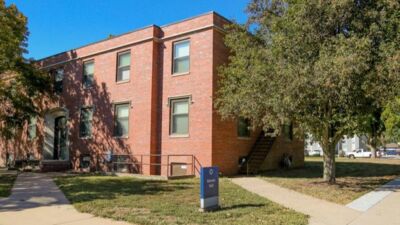What to Consider When Looking at Colleges

Applying for colleges is a lot of work, but before you even start that process, there are decisions to be made. Which colleges will end up on your list? For students who have likely never lived away from home before, choosing where to spend the next four – or more – years of your life can seem daunting, with seemingly endless factors for consideration. However, having a comprehensive list that you can use to evaluate potential schools can be quite useful.
Size
U.S. colleges range in size from less than 1,000 undergraduates to more than 50,000. Depending on your preference, you could find yourself among thousands of classmates or just a few. Sometimes, students who come from very small schools might like to experience attending a large college. Others might feel differently; alternately, students who previously attended very large high schools might want a college with a smaller, more tight-knit feel. Concordia University, Nebraska’s undergraduate enrollment is just over 1,200, placing it on the smaller end of the college-size spectrum.
Location
Whether you want to live 15 minutes or 15 hours away from home, take courses in the mountains or in the Great Plains, or study online, you’ll find a college that suits your preferences. However, many considerations must be made when choosing a location to attend college. First, think about travel, especially if you don’t have a car. Consider how you will get home, what it will be like to travel in the winter and whether you would need to fly home.
In addition, determine what climate suits you. Perhaps you grew up in the Midwest but want to attend college somewhere you can visit the beach year-round. Or you might prefer a location that experiences all four seasons. Furthermore, think about what it will be like to live away from home. Will you be comfortable staying at school for a few months at a time before visiting home? Or will you want to go home every weekend?
Program offerings
It’s likely that you’ll have an idea of your potential major before you begin looking at college options. Another consideration to make is whether the college you may want to attend offers the program in which you’d like to enroll. This criterion is more applicable to smaller colleges – who may not offer as many specialized programs – than larger colleges and is especially true if you have very specific interests. For example, some colleges may offer a major in general biology but not plant biology, or art but not art history. So select a college that best caters to your passions and personal goals!
Cost
College can be expensive – and attendance at some universities costs more than at others. When considering colleges, however, look not only at the listed tuition price but also the school’s financial aid options. For example, Concordia Nebraska offers merit, performance and faith-based scholarships that can drastically reduce the actual price paid by students. Undergraduate students at Concordia receive an average of $29,000 in annual financial aid.
On-campus amenities
"Amenities” refer to the parts of the college experience that make it feel a bit more like home. Some colleges offer on-campus chain restaurants. Some may have a fitness center, state-of-the-art laundry facilities or extensive outdoor “green space.” College isn’t only about the academics; it’s also about feeling comfortable where you are living, especially if you are away from home for the first time. Look into the amenities offered by the colleges on your list and take note of your own priorities.
Considering on-campus offerings is especially important in some cases. For example, if you have food allergies or require disability accommodations, making sure that an on-campus dining hall or disability support center will be able to meet your needs is vital. No matter your individual situation, you should feel comfortable and safe attending your college of choice.
Career services
Of course, securing a successful career or placement in graduate school is a matter of great importance for the majority of college students. Therefore, most colleges have some form of support for students seeking guidance in preparing for a future career. Look into what your colleges of choice offer in terms of career services. Do they have a dedicated office or department? Do they offer partnerships with area businesses and organizations? How can they help you find internship or job placements? With employment as a main end of choosing to pursue a college education, the ways that your college can help you down the employment path matter immensely.
Extracurriculars and activities
Of course, college isn’t only about studying – it's also about growing as a person, forming new connections, and even sometimes having fun! Extracurriculars and activities that take place outside of school can certainly serve this purpose. Whether you’re a knitter or football player, many colleges will have a place for you to take part in your favorite non-academic activities. However, if a college doesn’t offer a place for you to practice an interest that is a significant part of your life, you may be inclined to add a different college to your list in its place.
Applying to colleges is a big task – and choosing the “right” one can be daunting. However, if you make some important considerations in the time leading up to application season, your final choice will hopefully become much easier when the time comes to make it.
Concordia University, Nebraska promises students a Lutheran, Christian higher education that equips them not only with skills and a degree, but also a sense of vocation and purpose for the future. It emphasizes the importance of the Gospel and is a Christ-centered community of believers and academics. Learn more about applying to Concordia here.
Interested in applying to Concordia?
Related Stories


